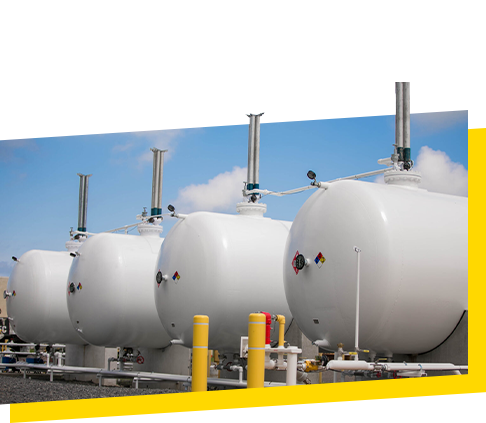Home » Autogas
Autogas
With close to 300,000 vehicles on the road in the US being fueled by propane (and some 15 million worldwide), it is clear that many companies, organizations, municipalities, and even everyday people are turning to propane as a trusted gasoline alternative. Propane is being used for autogas across the country, as well as in our backyard in Pennslyvania, New Jersey, and Delaware.
Do We Service Your Zip Code?
GasTec AUTOGAS
With close to 300,000 vehicles on the road in the US being fueled by propane (and some 15 million worldwide), it is clear that many companies, organizations, municipalities, and even everyday people are turning to propane as a trusted gasoline alternative. Propane is being used for autogas across the country, as well as in our backyard in Pennslyvania, New Jersey, and Delaware.
Currently, propane is the third most common choice of engine fuel, just behind gasoline and diesel. And since there are approximately 2,500 public propane autogas refueling stations nationwide, propane is now more available than any other alternative fuel. This is why it has become a popular alternative fuel in the private sector for the propulsion of personal vehicles; in the commercial sector for the propulsion of large fleets of vehicles; and in the public sector for powering properties owned by local and non-local governments.
REASONS TO CONVERT:
- Clean: Propane-fueled vehicles have a significantly smaller impact on the environment when compared to gasoline and diesel vehicles, emitting 12% less carbon dioxide, 60% less carbon monoxide, and 20% less nitrogen oxide. These numbers can result in up to 80% fewer hydrocarbons and 17% less greenhouse gas emissions coming from your vehicle. Additionally, the Alternative Fuels Group of the Cleaner Vehicles Task Force reports that autogas-fueled buses are actually 50% quieter than diesel buses, making for a more pleasurable–and safer–ride for everyone.
- Safe: Propane has the lowest flammability range of any alternative motor fuel. The propane tanks installed into vehicles are typically 20 times more resistant to puncture than standard gasoline or diesel tanks. Propane is also stored in a relatively low-pressure tank at about 300psi, while natural gas is kept at 3600psi. As a non-toxic, non-caustic gas, the EPA actually classifies propane as a non-contaminant of water, air, and land resources, making it the perfect choice for the environmentally-conscious consumer.
- Affordable: With tax incentives and grants available, many municipalities have begun to convert new fleets to reap the long-term savings of propane. But those incentives are just the upfront savings, as the price of propane, on average, is nearly $1.00 less than gasoline. Installing and maintaining propane autogas infrastructure is also less costly when compared to diesel since the EPA classifies propane as a non-contaminant.
- Available: Nearly 2,500 refueling stations are currently available nationwide, and that number is only increasing.
- Long-Lasting: Vehicles that run on propane autogas require less oil than diesel-fueled vehicles and do not require extra filters and emission fluid. Because propane-fueled vehicles run cleaner, there is less maintenance required, which will typically allow your engine to last twice as long.

Request Service
Need a refill? Have questions or comments?
Leave us a message and we will respond as quickly as we can! If it’s an emergency please call.
If it’s an emergency please call.
"*" indicates required fields
